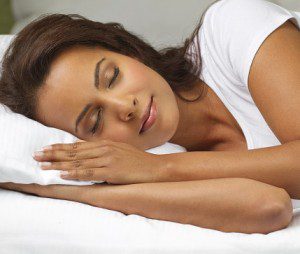 Getting adequate rest is vital for wellbeing and for recovering from any setbacks. The body struggles when more energy has been expended than your body can readily replace. The only way to replenish your energy is to rest, and sleep is the best form of rest, says psychologist, speaker and award winning author Margaret Lambert in her latest column for the South West Voice.
Getting adequate rest is vital for wellbeing and for recovering from any setbacks. The body struggles when more energy has been expended than your body can readily replace. The only way to replenish your energy is to rest, and sleep is the best form of rest, says psychologist, speaker and award winning author Margaret Lambert in her latest column for the South West Voice.
People with chronic conditions will require longer periods of rest than others for the body to recuperate. The body heals best when it is at rest, and quality sleep allows the body the best opportunity to rest and refresh itself. Sleep also assists in reducing pain and other problematic symptoms.
On the flip side, sleep deprivation has us feeling even more run down, tired, irritable and emotional. Research has shown that chronic sleep deprivation is also associated with memory impairment, mood disturbance, decreased motivation and negative effects on the immune system. So it makes good sense to ensure you are getting adequate sleep!
Many people report an inability to sleep as a chronic problem. A pattern of problem sleeping increases anxiety about sleeping, creating a vicious circle and ongoing sleeping difficulties. It can be exceedingly frustrating to be lying awake in the middle of the night when everything is shut down and quiet, and others in the household are asleep. This is the time when any symptoms you may have can feel intensified, and anxiety producing thoughts can become incessant. It is therefore important to develop a good sleeping pattern and if need be, to find ways to reduce any anxiety about sleeping.
Some tips for assisting sleep:
• Your bedroom should be set up as a restful, soothing place that is conducive to sleep – it should not be used as a work or general social networking area;
• Remove the television, any other screens, electrical appliances and any work related materials;
• Ensure the room is adequately dark at night. Light is the main factor that influences our circadian rhythm which affects our sleep-wake cycles;
• Establish a regular routine prior to bedtime:
• going to bed at the same time each night;
• doing activities that help in winding down, such as playing soothing music, having a herbal (camomile) tea, turning out lights in the rest of the house, doing a relaxation technique. Do not take coffee or other stimulants before bedtime;
• EFT (Emotional Freedom Techniques) is a great tool for reducing anxiety, and can help to calm the body and mind prior to sleep (see my webpage for further info on EFT);
• If you can tolerate the aroma, sprinkle a few lavender drops on the pillow;
• Write down any pressing issues on a ‘to do’ list, then in your mind let go of all the things that need to be done;
• When you wake during the night, do not check the time but try to calm the mind again to go back to sleep. Again, EFT can help in getting back to sleep;
• In addition to a regular bedtime, establish a regular wake up time and a morning routine.
If, after following a sleep routine for several days, you still have difficulty in going to sleep or in getting back to sleep after waking during the night, it is worth continuing with the bedtime routine. Being creatures of habit, our bodies may have adopted a pattern of problematic sleeping, and may therefore need to learn a new pattern of sleeping behaviour that aids restful and restorative sleep. As with learning any new skill and new pattern of behaviour, improvement and change take place through repeated practice over time. If sleep continues to be problematic after some weeks of following a bedtime routine for calming the body, there are some additional suggestions that may help:
• Many people report the benefits of taking a natural product such as Valerian for assisting sleep.
• Taking melatonin supplements may improve sleep. Melatonin is a hormone produced naturally by the body during hours of darkness. People who have sleeping problems may be producing low levels of melatonin. Although reasonably safe, it is advisable to contact your health practitioner prior to taking melatonin as a supplement.
• Taking GABA, or gamma-aminobutyric acid, supplements may also improve sleep. GABA is an important inhibitory neurotransmitter in the brain and is needed to balance stimulatory neurotransmitters. It is advisable to contact your medical practitioner prior to taking GABA.
Keep persisting with finding a routine that works for you, and remember that it may take some time for the body to take on board a new pattern of behaviour. Some of the biggest culprits responsible for sleeping problems today are mobile devices. When we keep checking the phone or ipad, the brain is still in gear. Remove yourself from these devices at least 30 minutes prior to bedtime, and allow the mind to slow down.
Until next time, sleep tight!
 ♦ Margaret Lambert’s professional focus is holistic health and wellbeing, chronic illness, and the impact that our experiences have on our health and wellbeing. Her book, Longing to Live: Journey with Chronic Fatigue Syndrome and Fibromyalgia received an honourable mention in the London Book Festival.
♦ Margaret Lambert’s professional focus is holistic health and wellbeing, chronic illness, and the impact that our experiences have on our health and wellbeing. Her book, Longing to Live: Journey with Chronic Fatigue Syndrome and Fibromyalgia received an honourable mention in the London Book Festival.
